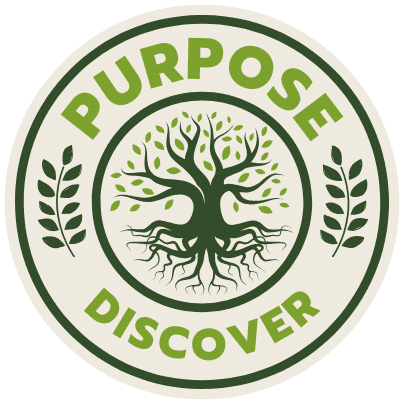There comes a moment when the noise around you dulls, and a simple question cuts through all the clutter, shining a light on what really matters. It’s not about your job title, how many followers you have, or even that shiny new gadget everyone’s buzzing about. It’s something deeper—something that forces you to look past surface distractions into the core of what makes you tick. This question isn’t philosophical fluff or a generic pep talk. It’s sharp, sometimes uncomfortable, but ultimately liberating.
Ask yourself: “If I only had one year left to live, what would I choose to spend my time doing?”
I know, it sounds dramatic. But imagine it—not tomorrow, not next week, but one year. Suddenly, everything you thought was urgent falls away. The to-do list? Irrelevant. The endless scroll through social media? Pointless. The petty grudges you’ve been holding? Who has time for that nonsense? This question doesn’t just sift through your priorities; it vaporizes the ones that don’t truly matter.
What does this tell you? Where your energy goes, where your thoughts drift when you are honest with yourself—those are the things that truly matter to you.
The Brutal Honesty Test
When was the last time you asked yourself something so raw? Life’s pace pushes us to multitask, to juggle roles, to keep busy for the sake of looking productive. But beneath this busy façade, many of us open our eyes in the morning wondering what the hell we’re doing with our lives. This question—the one about having only a year left—is a brutal honesty test. It strips away societal expectations and forces you to confront what’s real, what you value, and what you’re willing to fight for.
Because here’s the thing: if you don’t know what truly matters to you, someone else will tell you. Advertisers, social media algorithms, even well-meaning friends can shape your priorities without you realizing it. I’m not saying you should throw away all advice or external input. But when the dust settles, your answer should come from a place deep inside, not from the noise outside.
What Happens When You Face This Question
For some, it’s family. The answer is obvious, but the realization can be revelatory. You start noticing how many moments with your loved ones you’ve sacrificed for emails or meetings that, in hindsight, probably didn’t deserve your attention.
For others, it’s creative expression. Painting, writing, music, or some form of art that makes their soul breathe. The one-year question reveals how much they’ve pushed their passion to the back burner because society said, “You need a stable job.” But when you strip away the illusions of “should,” what’s left is that burning desire to create.
Some find clarity in service—helping others or contributing to a cause bigger than themselves. The idea of making a real impact, of leaving a positive mark, suddenly becomes less abstract and more urgent.
Why This Question Works Better Than “What Do You Want in Life?”
Isn’t it funny how “What do you want in life?” sounds so vague it’s almost useless? It’s like asking someone, “Where do you want to go?” without any context—answer could be anywhere or nowhere. But add a ticking clock, and suddenly your choices sharpen.
You realize that you wouldn’t waste time on things that drain you or make you miserable. The question forces you to weigh experiences, relationships, and activities based on their emotional and spiritual return—not their social value or monetary benefit.
It’s weird how a time limit can open up possibilities instead of closing them down. Some people think, “If I only had a year, I’d quit everything and travel the world.” Others might say, “I’d spend every day with my kids.” Both answers are valid, but both are honest reflections of what gets you out of bed with a spark in your heart.
The Problem With Not Asking the Question
Most people cruise through life on autopilot, stuck in routines that don’t fulfill them. They chase promotions, money, or approval without checking if any of that aligns with their true desires. The problem? Without clarity, you end up exhausted, frustrated, and confused about why happiness remains elusive.
Avoiding this question is tempting because it’s scary. What if the answer demands huge changes? What if it means admitting you’re unhappy? Or that you’ve been prioritizing the wrong things? But here’s a secret: the discomfort is a sign that you’re alive and ready for something better.
Practical Ways to Grapple With Your Answer
Once you’ve posed the question, don’t rush to a neat conclusion. Let your answer simmer. Write it down. Talk it through with someone you trust. Journal about what it would really look like to live that way day-to-day. The key is to let your emotions guide you, not logic alone.
Try to identify small steps that bring you closer to what matters. If it’s family, maybe it’s scheduling weekly dinners or phone calls instead of endless emails. If creativity calls you, carve out 30 minutes a day to write or paint. If impact is your thing, volunteer, donate, or start that project you’ve been dreaming about.
You don’t have to quit your job immediately or uproot your life overnight. Progress is progress, even if it’s tiny.
When Priorities Clash and Life Gets Messy
Sometimes the answer to the one-year question isn’t neat or easy. What if family matters most, but your job demands long hours? What if your passion for art is at odds with financial stability? Life throws curveballs, and priorities often clash. That’s where things get complicated—and interesting.
This question isn’t a magic wand. It’s a compass. It doesn’t tell you exactly what to do, but it helps you navigate. It nudges you to negotiate your priorities, to set boundaries, and to make choices that align with what matters most, even if imperfectly.
We don’t live in a vacuum, and our responsibilities shape us as much as dreams do. But knowing what truly matters gives you power—the power to say “no” to distractions, “yes” to yourself, and to push back against the forces pulling you off course.
The Bigger Picture: Why This Matters Beyond You
Finding what truly matters isn’t just a personal luxury. It ripples outward. When you align with your core values, your relationships deepen. Your work, whatever form it takes, gains meaning. You attract people and opportunities that resonate with your authentic self.
It’s no surprise that some of the most fulfilled people aren’t those with the biggest bank accounts or the flashiest lifestyles. They’re the ones who know what matters and build their lives around those truths.
If you want a practical tool to explore this further, discover how to define your own purpose with exercises designed to clarify and inspire.
Final Thoughts on What Truly Matters
Life is messy, unpredictable, and often unfair. But the one question about having just a year left cuts through the chaos with brutal clarity. It’s not a gimmick or a cliché—it’s a powerful lens that reveals your real self beneath the layers of “supposed to” and “ought to.”
You owe it to yourself to ask it. To sit with the discomfort. To listen closely. Because once you find what truly matters, everything else starts to fall into place—or at least, you start living a life that feels worth living.
And honestly? Isn’t that worth a little courage, a little honesty, and some soul-searching?
If you want to take this deeper and explore how your purpose aligns with what truly matters, you might find some eye-opening insights at this guide to finding your personal mission. It’s like having a conversation that challenges you and cheers you on all at once. Give it a look—you might be surprised what you discover.

